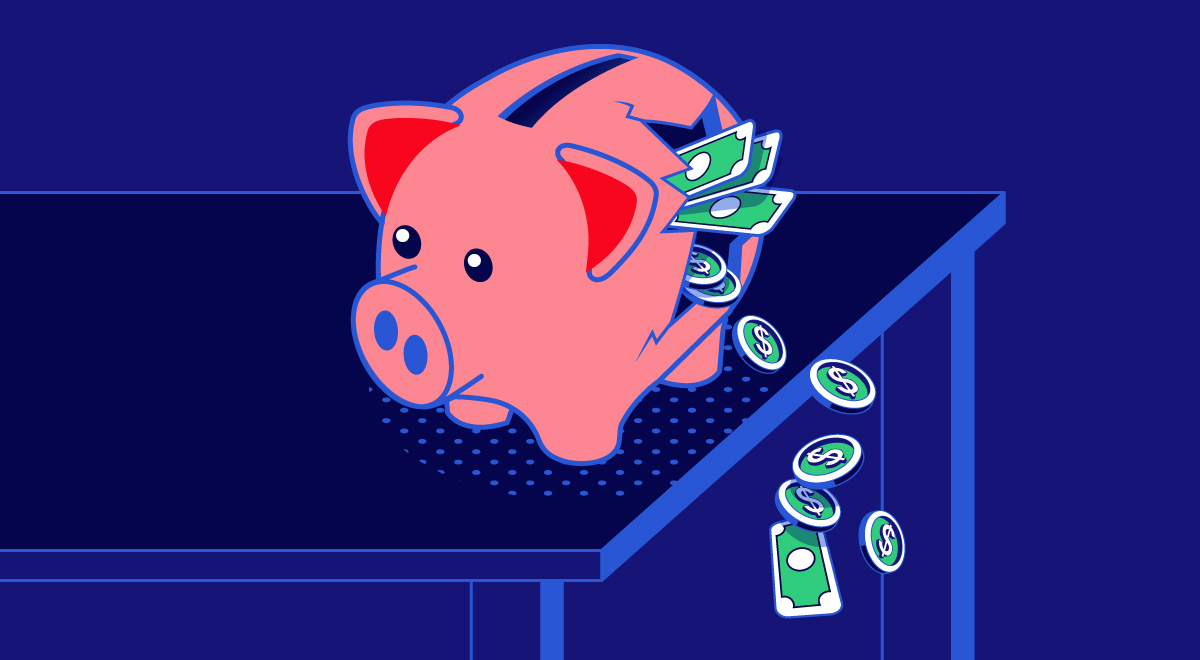Let’s face it; for many people, “managing” money is a success when you “manage” to have a few bucks leftover at the end of the month. It’s easier and more fun to not set strict controls, and just know that to pay all your bills you can’t go out and buy a boat. Money comes and money goes, and life goes on in the interim. It’s not so much managing your money; it’s that your money manages you. Others may take more control over their finances, but no matter which approach you take, chances are strong that you’re making some mistakes, and when it comes to finances, mistakes equate to lost money. What is the most common mistake in managing money? Let’s review some contenders for that title.
1. Frivolous Spending
Most people don’t go out and make a big purchase on a whim. They don’t wake up one day and think, “I’m going to buy that boat!” However, people do go out and spend a little every day on things they don’t really need, such as that sugar-free iced vanilla latte with oat milk, or dining out when they don’t feel like cooking at home. When considering any purchase, if you ask yourself, “Is this a want or a need,” you’ll quickly realize how much money you’re spending on things you don’t really need. It’s okay to buy some “wants” here and there, but if you want to cut your spending, it shouldn’t be your default.
2. Not Having an Emergency Fund
One of the many things that the coronavirus pandemic has taught is the importance of having money set aside in case of an emergency. Even the most secure jobs aren’t 100% secure, and you don’t know when an unexpected financial problem will arise. With money set aside, a car repair, medical bill, or even a pandemic won’t derail your finances.
3. Not Saving Enough for Retirement
The best time to start saving for retirement is now. Are you not retiring for 30 years? Save now. Are you thinking of retiring in 5 years? Save now. If your company offers to match your contributions to your 401(k), you should be contributing at least the maximum that it’ll match. Otherwise, you’re throwing away free money. Speak with a financial planner to figure out how you can prepare for retirement no matter what your age.
4. Carrying too Much Debt
Living with high debt doesn’t have to be the norm, but for many, it is. An expensive mortgage for a house that’s bigger than you need, a new car every five years, and several credit cards with high balances is just the way it is. A smaller house could save you huge over the life of a 30-year mortgage. Cars depreciate quickly starting the moment you drive it off the lot, so why not let someone else take that hit and buy a gently used car? Many high-quality used cars on the market are still under warranty.
Credit cards may be convenient but use them sparingly, and don’t charge things that you can’t pay off in a month or two. Moreover, you definitely shouldn’t be using them to pay bills. If you have a $10,000 balance on a credit card with an APR of 15%, paying the minimum monthly payment of 2% will take over 6.5 years to pay off, and you’ll end up paying over $5,000 in interest on top of the $10,000 balance. Of course, this calculation is with the assumption that you won’t charge anything more to the card during those 6.5+ years. If you’re carrying a lot of debt every month and struggling to make payments, it may be time to consider a debt consolidation loan or debt settlement.
5. Spending More Than You Make
What is the most common mistake in managing money? Well, it’s all about the math. If you want to achieve any kind of financial stability, you need to spend less money than you make. Make a list of expenses that not only includes all your bills and necessities such as food and clothing but also money for an emergency fund. Now, look at how much net income you have in a month. If your take-home pay is less than your expenses, you need to tighten your belt with a stricter budget or supplement your income with a side job (or both).
By knowing the most common mistakes in managing money and taking the right steps in avoiding making them yourself, you can get your finances on track and start managing your money instead of the other way around.





